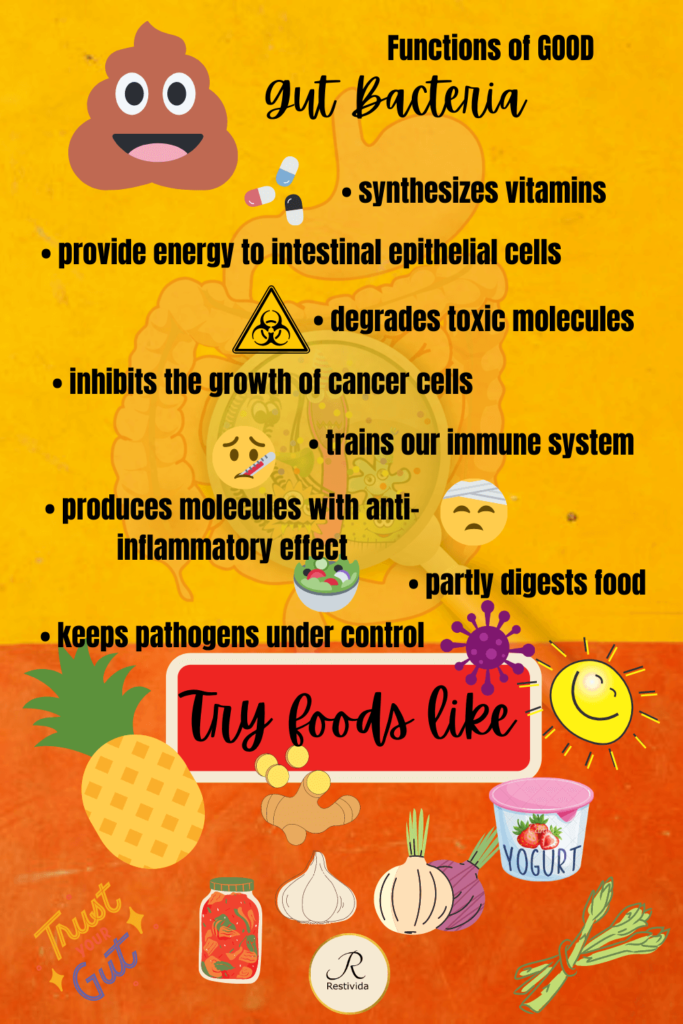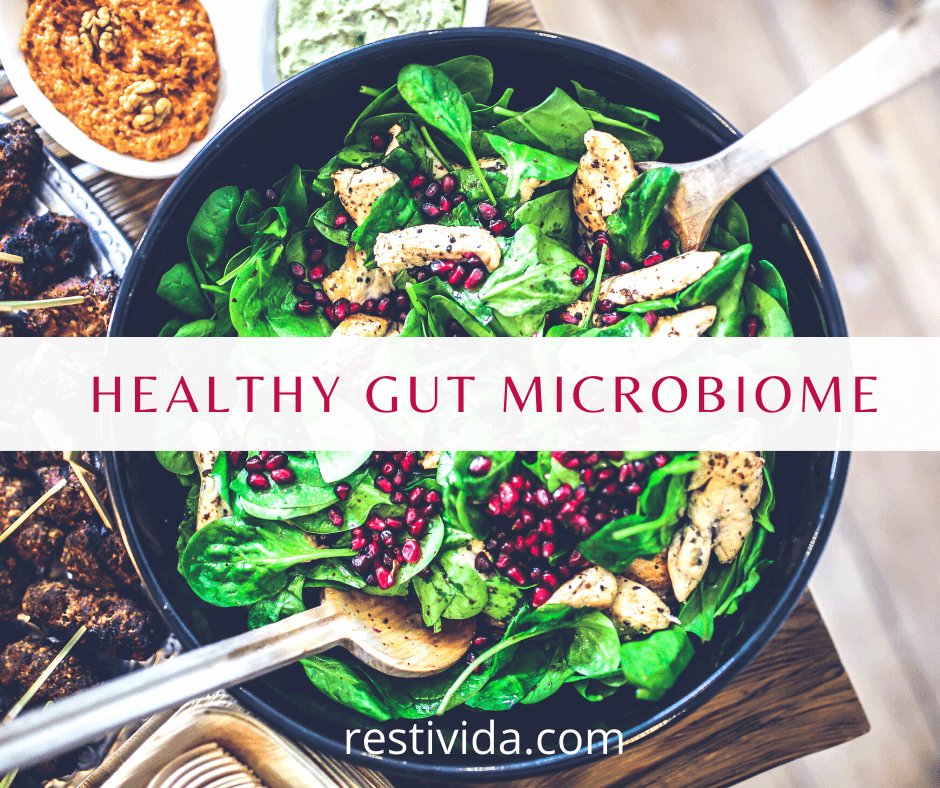The gut microbiome and gut health: Interview with Puunaa Dashnyam; PhD.
What are your qualifications?
I am a recent PhD in biotechnology. During my PhD, I studied a gut microbial enzyme that plays a role for xenobiotic-induced toxicity.
...And why did you decide to study gut bacteria?
To be honest, I didn’t know much about gut bacteria until I started my PhD research. When I first joined my PhD lab, my supervisor and colleagues introduced me a couple of projects and let me choose the one I liked the most. I chose the one about gut microbial enzymes mostly because I wanted to learn how to solve three-dimensional structures of proteins. Then, I started reading papers on gut microbiota and came to know that it was a relatively new and exciting area. Gut microbiota research is changing the way we see our health and diseases.
What are the common misconceptions people have about gut bacteria?
I think most people kind of know that we carry millions of microbes in our gut and that they are somehow beneficial to us. Collectively, the microbes in our gastrointestinal tract are called gut microbiota. Gut microbiota consists mostly of bacteria, but fungi, archaea, and viruses are also present in gut.
I think most people underestimate the capacity of gut microbiota’s effect on our body and mind. Gut microbiota has at least one hundred times more genes than the number of genes we have. We are in constant communication with our gut microbiota to maintain a homeostatic balance.
Also, people may or may not know that the microbiota is quite malleable. The diversity and density of microbiota can be changed depending on age, diet, environment, etc.

What are the common misconceptions people have about gut bacteria?
When people are talking about gut microbiota they are talking about microbes in large intestine, in most cases. But the whole gastrointestinal tract, from mouth to anus, is inhabited by microbes. Each section has a distinctive microbial community because of the variation of physiological factors along the gastrointestinal tract, such as pH and the availability of oxygen.
The large intestine or colon harbors the most number of microbes, and the diversity of microbes is the highest as well. Also, if we take a cross-section of a given site of the intestines the composition and diversity of microbes are different.
For instance, microbial composition in gut lumen is different from that in mucosal layer and the intestinal crypt.
What are the functions of good gut bacteria?
In my understanding, it is not straightforward to distinguish between good bacteria and bad bacteria. So, I want to share with you some of the functions of a healthy gut microbiota.
Healthy microbiota synthesizes vitamins, provide energy to intestinal epithelial cells, produces molecules with anti-inflammatory effect, digests some part of food that we cannot digest, trains our immune system, keeps pathogens under control, degrades toxic molecules, inhibits the growth of cancer cells, and so on.
There are many gut bacteria that can do one or more of these functions. So, I guess they are the good bacteria.
Does my gut only need good bacteria and no bad bacteria at all?
I am not sure if there is an exact answer for this question. Of course, we don’t want to have external pathogenic bacteria in our gut. Some pathogenic bacteria can be found in our gut in a very low abundance without causing any harm to us because healthy microbiota is able to resist the pathogens.
Certain conditions, such us the extended use of antibiotics, some diseases, and stress can alter the composition of gut microbiota. This will give a chance for the pathogenic or opportunistic bacteria to thrive. As a result, the gut microbiota is no longer balanced. Many adverse consequences can come from the imbalanced microbiota. For example, repeated use of antibiotics can lead to the colonization of Clostridium difficile in gut.
Antibiotics destroy most of commensal microbes, so pathogens can easily colonize the gut. C. difficile produces toxins that impair intestinal barrier function. This impairment initiates inflammatory processes in intestinal epithelium, and eventually increases intestinal permeability.
The increased permeability allows pro-inflammatory molecules produced by microbiota to pass the intestinal barrier and cause the systemic inflammation. Sometimes, gut bacteria escape from gut into blood stream or other organs.
What does the bad bacteria do?
People report elevated abundance of particular bacterial species or a group of bacteria in many diseases. I am not sure if they are the cause or consequences of the diseases. But, I can give you some examples of “bad” activities of some bacteria present in gut.
They can destroy gut mucus layer, which is important barrier between gut content and our cells, and produce pro-inflammatory cytokines. Some bacteria are believed to be associated with the development of color cancer by either producing toxins that damage DNA or by promoting inflammation.
Because gut microbiota is associated with so many diseases people started developing therapeutics targeting gut microbiota, specifically certain activity of gut microbiota.
My thesis was a part of a project that aims at developing a therapeutic agent targeting specific enzymes produced by gut microbiota. These enzymes delay or inhibit the removal of toxic xenobiotics from our body by interfering with our detoxification system.
Ideally, by inhibiting the activity of these enzymes people won’t experience toxicity of xenobiotics.
How are the gut and the brain connected by gut bacteria Please elaborate on the mechanism how the gut bacteria affects the brain For good bacteria For bad bacteria?
Maybe you have heard of gut-brain axis that connects gut and brain. It is a system that involves central nervous system, autonomic nervous system, neuroendocrine, neuroimmune system, and gut microbiota.
An oversimplified answer is that the gut is connected with the brain by enteric nervous system and vagus nerve. They regulate gastrointestinal motility, immune response, secretion of hormones, and transmit information from gut to brain, and vice versa.
These nerves are embedded in the intestinal lining, and receptors for neurotransmitters, hormones, cytokines, and microbial metabolites on them allow communication between the gut and the brain. Gut microbiota produce several neurotransmitters, including acetylcholine, serotonin, melatonin, and catecholamine.
Gut microbiota also modulates the production of these molecules by human cells. So, gut microbiota influence the brain through the production and modulation of neuroactive molecules. In addition to this, microbial metabolites can enter blood stream and reach the brain.
Scientists suggest that the gut microbiota influences pain perception, cognitive function, emotion, mood, social behavior, stress, and dietary choice. For example, some pathogenic bacteria are shown to increase depression and anxiety-like behavior whereas some probiotic bacteria reduced these behaviors.
Now people are investigating whether modulation of gut microbiota can improve mental illnesses and neurodegenerative diseases.
How does the balance of good bacteria get affected in today’s modern life?
Gut microbiota is influenced by many environmental factors, including dietary components, medication, stress, and health status. So, in modern world, we eat so much processed foods that contain food additives, we take a variety of drugs and antibiotics, we are usually stressed, we consume alcohols, etc. These factors are shown to reduce the diversity of gut microbiota.
Also, our hygiene is improved and we do not interact with nature, including animals, so we have less chance of developing a diverse gut microbiota. Some people suggest that if babies are not exposed to environment with different microbes they will have a high chance to develop allergy and inflammatory diseases in the future.
Even how you deliver your baby impacts the development of the baby’s gut microbiota. Babies delivered by C-section are exposed to different microbes than normally delivered (through birth canal) babies are. This may have negative effect on their health as they grow up. Also, sedentary lifestyle and obesity influence our gut microbiota.
How do I know if my balance is off in terms of symptoms? How do I get my balance back on track?
I think this question is beyond my expertise. Gut microbial imbalance is associated with so many diseases such as diabetes, IBD, cancer, liver cirrhosis, autoimmune diseases, bacterial and viral infections, and neurodegenerative disorders. I guess symptoms indicating gut microbiota imbalance can be digestive problems like constant bloating or diarrhea, or behavioral changes.
If you are craving unhealthy food, or if you are more anxious or depressed, feeling tired, maybe you need to listen to your gut. Getting your gut microbiota on balance depends on the level of imbalance or severity of disease. For people without severe disease, the first thing is to eat clean, of course.
Diet has the largest impact on gut microbiota. Next, probiotics or traditional fermented foods, and prebiotics can help balance our gut microbiota. There are studies showing probiotics and prebiotics reduce inflammation, fight pathogens, and lower gut permeability. Some people even coined a term “psycobiotics” for bacteria that can help improve mental illnesses.
An option for severe cases, like in case of Clostridium difficile infection, gut microbial dysbiosis is treated with fecal transplantation. It is an approved technique for the treatment of dysbiosis caused by Clostridium difficile infection, and its success rate is more than ninety percent.
Now, people are trying to see if this technique can be used in the treatment of other gastrointestinal and non-gastrointestinal diseases.
Please share any final thoughts that you’d like to let the readers know.
All the information I shared here is just what I have learned from other people’s research. Gut microbiota is very broad and complex field, and our understanding of gut microbiota is expanding day by day. So, please keep in mind that I am not able to keep up with and comprehend everything related to gut microbiota.
I guess the take home message for us is that if you want to stay healthy you want to have high diversity of microbes in your gut. You can do that by eating healthy food and maintaining healthy life style. I would like to recommend a book named “Good gut” by Dr. Justin Sonnenburg and Erica Sonnenburg.
The authors are actual experts in microbiota field, and in the book, they provided meal recipes to help us maintain a healthy gut. Also, I recently came across with a story of Dr. Terry Wahls, who treated the symptoms of secondary progressive multiple sclerosis by changing her diet and life style. She was using a wheelchair for years, and now she rides a bicycle to work every day.
Finally, I would like to remind everyone a quote by Hippocrates: let food be our medicine.
Editor's Final Words:
To find out how to make the first steps in getting your gut into shape, check out our post here.
